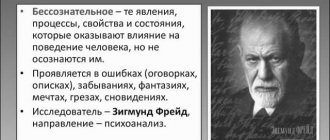Consciousness – in philosophy, this briefly characterizes the process of the emergence of automatism. A person remembers certain actions at the level of consciousness and repeats them under strict control. With its help, he gets to know the world, masters certain knowledge, which after a while becomes automatic. The skill begins to manifest itself unconsciously, which is what long-term training and frequent repetition lead to. An example of a transition from conscious to unconscious is performing dance movements, playing the piano, or driving a car.
When a person learns, he controls his every action. After learning for some time, he feels tension while repeating what he has learned. Later, the task execution becomes automatic. An individual can repeat the process at any time, without even paying attention to it. Consciousness and the unconscious in philosophy are in close proximity to each other.
The transition of a conscious action to automatism is called subconscious. This is the stage between learning and perfect knowledge.
General characteristics of consciousness and the unconscious
Definition 1
Consciousness is a special state of a person in which he has the ability to simultaneously perceive the surrounding reality and himself as a separate individual and personality.
At the same time, a person is fully aware of his thoughts, intentions and manifestations of behavior.
The main content of the activity of human consciousness consists of the following actions:
- emotional assessment of the surrounding reality,
- ensuring the process of carrying out purposeful activities;
- preliminary mental construction of optimally organized and motivated actions;
- predicting the possible consequences of activities;
- a person’s ability to introspect and adequately perceive events occurring in the reality around him.
Are you an expert in this subject area? We invite you to become the author of the Directory Working Conditions
Thus, consciousness is an ideal mental form of human activity, which is focused on active and purposeful reflection and transformation of the surrounding reality.
Speaking about the presence of conscious mental activity in a person, we must not forget about the existence of the unconscious sphere of the psyche.
Definition 2
The unconscious is the totality of mental phenomena, actions and states that a person has that lie outside the sphere of manifestation of the human mind. They are unconscious and cannot be controlled by the conscious side of the human psyche. Examples of unconscious processes are dreams, a hypnotic state, and deranged states of a person.
Thus, everything that is not in the focus of a person’s consciousness at a given specific moment, but can find its manifestation in consciousness with the help of memory, can be classified as unconscious processes.
Finished works on a similar topic
Course work Consciousness and the unconscious 480 ₽ Abstract Consciousness and the unconscious 280 ₽ Test work Consciousness and the unconscious 190 ₽
Receive completed work or specialist advice on your educational project Find out the cost
Also, an example of the manifestation of unconscious processes can be automatisms that were developed with the help of consciousness, but as a result of long training and repeated repetitions they acquired an unconscious character and went beyond the control of consciousness.
Such automatisms are, for example, the skills of playing musical instruments, the skills of athletes, and the automated skills of performing certain labor operations.
The structures of the unconscious can vary depending on the degree of their proximity to consciousness.
Note 1
There is also a special level of the unconscious, called the subconscious. It includes those mental phenomena that are associated with the transition from the level of consciousness to the level of automatism.
Processes of the unconscious can direct human activity and behavior and thereby influence consciousness in a certain way.
Every day I get better and better in every way
For 30 days, every evening before going to bed and in the morning after waking up, sitting comfortably in bed and completely relaxed, closing your eyes, as you exhale, say the phrase 30 times: “Every day I am getting better and better in every way.”
When pronouncing a phrase, do not focus your attention on it. Mentally bending your fingers will help you count. It is not recommended to pronounce the phrase in an active waking state. Example: while driving, at work, at lunch. We accompany the repetition of the phrase with visual pictures of the fulfillment of what we want, that is, we turn on the imagination as much as possible, dream as much and as often as possible! WE ONLY THINK ABOUT THE GOOD! WE TRY TO THINK ABOUT GOOD AND IN AN ACTIVE, AWAKE STATE!
WE ONLY THINK ABOUT THE GOOD! WE TRY TO THINK ABOUT GOOD AND IN AN ACTIVE, AWAKE STATE!
I scrupulously followed the instructions and a miracle really happened, but not after 30, but after 40 days. I came to the realization of a rather serious problem that was located in the unconscious zone. After realizing this problem, I understood how this technique works and I want to share my thoughts with you.
The unconscious, from all the variety of constructs presented in it, selects the most significant problem.
The unconscious adjusts the cognitive sphere (perception, attention, memory, etc.) to extract the necessary information from the reality around us. The fact is that in this world everything we need is present (i.e.
resources, information, knowledge, etc.), but due to the selectivity of our attention, we often lose sight of very important details. Or even, this information is already in us, but hidden in the unconscious, i.e. is in some kind of abrupt, “collapsed” form.
The unconscious begins to scrupulously collect this information and put it into clusters and structure it. In this case, it should be noted that this process occurs automatically, i.e. without spending any effort.
Ultimately, when all the necessary information has been collected, insight occurs, the puzzle comes together, and the information is presented in our minds in the form of a structured image.
However, it should be noted that at the initial stages of awareness, the mood and general condition may worsen, this is due to the fact that the unconscious does not really want to part with its concept of the world, for it it may be somewhat painful, but then new information is built into the unconscious and acceptance is coming. published by econet.ru
Author Nadezhdin Sergey
Illustrations by Sofia Bonati
Thematic selections of videos https://course.econet.ru/live-basket-privat in our closed club https://course.econet.ru/private-account
We have invested all our experience in this project and are now ready to share our secrets.
- SET 1. PSYCHOSOMATICS: REASONS THAT TRIGGER DISEASES
- SET 2. HEALTH MATRIX
- SET 3. HOW TO LOSE WEIGHT ONCE AND FOR ALL
- SET 4. CHILDREN
- SET 5. EFFECTIVE REJUVENATION METHODS
- SET 6. MONEY, DEBT AND CREDITS
- SET 7. PSYCHOLOGY OF RELATIONSHIPS. MAN AND WOMAN
- SET 8.RESULT
- SET 9. SELF-ESTEEM AND SELF-LOVE
- SET 10. STRESS, ANXIETY AND FEAR
PS And remember, just by changing your consciousness, we are changing the world together! econet
Research on unconscious processes in psychology
The main ideas in the development of the theory of the unconscious were put forward by Sigmund Freud, who not only theoretically described the features of this phenomenon, but was also able to give these ideas a practical character.
This theory allowed Freud to treat people for many mental illnesses. The doctrine he created is called psychoanalysis, and it is still relevant at the present stage of development of psychology and psychotherapy.
According to Freud's teachings, the human psyche is divided into three spheres: “It”, “I” and “Super-Ego”, where “It” is the unconscious desires of a person, “I” is the conscious sphere, which acts as an intermediary between the manifestations of the unconscious and the external world of a person, and the “Super-I” is an authority that personifies the attitudes, norms and rules existing in society.
By analyzing the processes occurring in the human psyche, Freud saved him from neuroses. This process consists of several stages:
- first the unconscious is revealed;
- then, when the patient is ready, the unconscious is brought into consciousness.
- painful attitudes hidden in the unconscious disappear and thus the source of painful neuroses disappears.
It should be noted that it is impossible to rid a person of the manifestation of the unconscious, due to the fact that a person is not only a conscious being, but also an unconscious one. Supporters of Freud's teachings adhere to the point of view that it is the unconscious that dominates the human psyche.
Lack of awareness is fixable
For everyone who recognizes themselves in the description of an unconscious person, there is good news: it can be fixed!
We all go through a phase of unawareness during childhood. The child does not think in terms of long-term goals; he is not able to understand the true reasons and meanings of his actions.
While consciousness has not yet developed in the little man, his survival is ensured by his parents.
An adult cannot afford to remain unconscious. However, each of us is, to one degree or another, susceptible to unconscious states. You just need to work through them without reproaching yourself for wrong actions or thoughts.
Developing mindfulness is hard work. But it always pays off by achieving higher tastes in life.
Dictionary of antonyms
CONSCIOUSNESS - UNCONSCIOUSNESS
Consciousness of actions - unconsciousness of actions.
CONSCIOUSNESS - UNCONSCIOUSNESS
Tatyana suddenly decides to write to Onegin: the act is naive and noble, but its source lies not in consciousness, but in unconsciousness: the poor girl did not know what she was doing.
Belinsky. Works of Alexander Pushkin. People always love through something: through a word or through silence, through explosive passion or through restrained and subtle lyrics, through subordination or subordination of oneself, through the flesh or through the spirit, through consciousness or through unconsciousness, through similarities or through differences, and so on. further, and so on. Zalygin. After the storm. CONSCIOUS - UNCONSCIOUS Conscious - unconscious consciousness - unconsciousness consciousness - unconsciousness conscious - unconscious consciously - unconsciously consciousness - unconsciousness conscious - unconscious consciously - unconsciously awareness - unconsciousness conscious - subconscious consciously - subconsciously
Conscious efforts - unconscious efforts.
Ο Observing any act of memory, we will certainly notice in it a conscious element: we are aware of what we remember, and an unconscious element: we are not aware of what is stored in our memory. Ushinsky. Educational anthropology. One such conscious fighter is worth more than a hundred, albeit daring, but unconscious brave men. Furmanov. Conscious heroes. ~ In meaning noun Wed R. We know very well to what extent mental mental life is variegatedly composed of the conscious and the unconscious. I. Pavlov. Pavlovsk environments. But we will simplify the situation if we do not notice that Suvorov’s conscious often changed places with the unconscious. Lotman. Conversations about Russian culture. CONSCIOUS - UNCONSCIOUS
Conscious actions - unconscious actions.
Ο Behind this kind of attitude towards his biography as a writer, Astafiev sees a conscious or unconscious desire of critics to ensure that “the reader is as lenient as possible towards me.” F. Kuznetsov. I am responsible for everything. CONSCIOUS - SPONTANEOUS Conscious - spontaneous consciousness - spontaneous
Conscious actions - spontaneous actions.
Ο A realist is always a dialecticist by nature, conscious or spontaneous. Pudovkin. Realism, naturalism and Stanislavsky’s “system”. After the war, a rise in spirit is very possible. But it is required that this rise be conscious, and not spontaneous. M. Gorky. Letter from S.V. Malyshev, May-June 1915. CONSCIOUS - MACHINAL Conscious - mechanical consciousness - mechanicalness
Out of mechanical habit, the dog tucked its tail between its legs when it ran away from you, but it ran out of a conscious thought. Chernyshevsky. Anthropological principle in philosophy.


